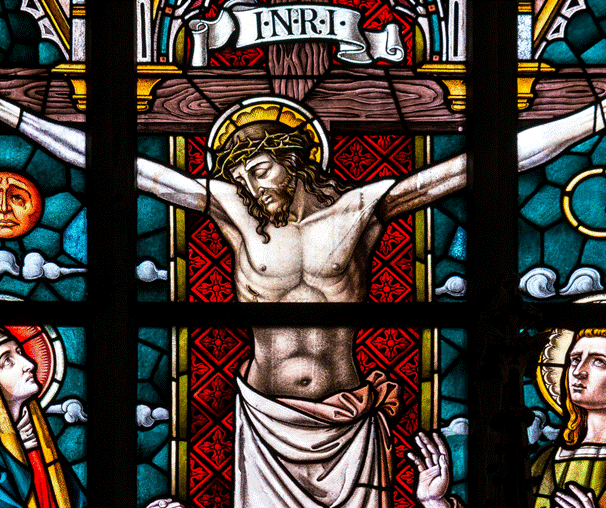David Carvalho | Diocese of Fall River

What happens when, after the well-intentioned planning and scheduling of ministries and programs, participation lags, enthusiasm fades, or programs seem to fall flat despite our best efforts?
Many ministers experience a familiar frustration—people don’t show up, don’t seem interested, or simply stop engaging. It’s easy to blame the culture, poor catechesis, or even the individuals themselves. But what if the problem runs deeper than a lack of interest or discipline?
What if the problem is that we’ve focused too much on the what of faith—and not enough on the why?
From Content to Purpose
In every parish, it’s common to teach people what to believe: prayers, doctrines, the Sacraments, liturgical practices, Church history. And while all of this content is important, it rarely sticks unless people first internalize why it matters.
Consider this: Many former Catholics were taught how to pray. They received their Sacraments. They showed up for classes and Mass—for a while. But eventually, they stopped practicing the faith. Why?
It’s not because they didn’t know the “what.” It’s because they never internalized the why. Without a sense of meaning or relevance, they concluded—consciously or unconsciously—that none of it mattered. In their view, faith offered no purpose, no transformation, no urgency. The message that Jesus died for them may have even been met with a resounding yawn.
This is the heart of the issue. People aren’t rejecting Catholic teaching because it was poorly explained—they’re walking away because it never personal. And when a person doesn’t believe that God is real or that actually He’s acting in their life, church attendance or religious education becomes optional at best, irrelevant at worst.
First Step: the need for Encounter
To illustrate this principle, think about marriage. Speaking from my own marriage, I didn’t marry my wife because I read a book about marriage and thought, “This sounds like a good idea.” I married her because I first encountered her and fell in love with her as a result.
Love creates purpose. And that purpose carries us through good times and bad, for richer or poorer. The same is true for our relationship with Jesus. Unless someone has fallen in love with Christ—unless they’ve encountered Him as real and personal—the content of our faith becomes information without transformation.
Jesus Himself makes this clear. In Matthew’s Gospel, He tells the parable of the house built on rock versus the house built on sand. The storms come to both. But only one remains standing. Why? Because it had a strong foundation.
That foundation is Him. We may know a lot about Him. But do we know Him?

Rediscovering the Why: Life to the Full
Author and speaker Simon Sinek famously teaches that “people don’t buy what you do; they buy why you do it.” Ministry is no different. The Gospel is the greatest “why” the world has ever known. And Jesus summarizes it beautifully in John 10:10:
“A thief comes only to steal and kill and destroy. I came so that they might have life and have it more abundantly.”
This is the core of our faith. The core of the Good News, or kerygma, tells the story of:
- A God who created us and loves us.
- Sin, which damaged our relationship with Him.
- Jesus, who died and rose to restore that relationship.
- Our response: to live in relationship with Him and receive eternal life.
This “why” must come before any “what.” Without it, sacraments feel like checkboxes, doctrine feels like memorization, and church feels like obligation. But with it, everything changes. The sacraments become lifelines. Doctrine becomes wisdom. The Church becomes home.
Sharing the Why: The Power of Testimony
One of the most effective ways to communicate the Gospel is through personal witness. This doesn’t require a dramatic conversion story. It simply involves sharing:
- Why you first said yes to Jesus.
- Why you continue to follow Him and stay connected to His Church.
- How your relationship with Him has made a difference in your life.
This is called sharing your testimony or your “basic witness.” And as Pope Paul VI said, “Modern man listens more willingly to witnesses than to teachers, and if he listens to teachers, it is because they are witnesses.”
In a culture flooded with information, people are hungry for transformation. Your story might be the most powerful evangelization tool you have—not because it’s perfect, but because it’s real.
When people see the difference Jesus has made in your life, they may begin to wonder what He could do in theirs.
Reframing Ministry
So. what does this mean for our daily work in parishes?
It means:
- Before teaching kids how to pray, help them understand why we pray.
- Before preparing teens for Confirmation, ask if they know why we follow Jesus at all.
- Before recruiting volunteers, invite them into a mission that matters—not just a role to fill.
- Before planning a program, ask: How does this connect people to Jesus and to the life He offers?
Every part of our ministry should flow from the Gospel—the “why” of our faith.
When we do this, we shift from simply teaching information to inviting transformation. We move from forming church-goers to making disciples.
Final Encouragement
If you’ve been feeling discouraged because “nothing seems to work” or “no one seems to care,” don’t give up. The problem may not be in your content—it may simply be in how it’s framed.
People need purpose. They need meaning. They need a “why.” And they need to encounter it for themselves in order to internalize it and “own” it.
Give them the why of the Gospel. Give them the why of your own witness. Help them fall in love with Jesus—and then everything else, the “whats” of our faith, will follow.
Watch the video version of this article “No One Cares” at: https://www.youtube.com/@equipcatholics